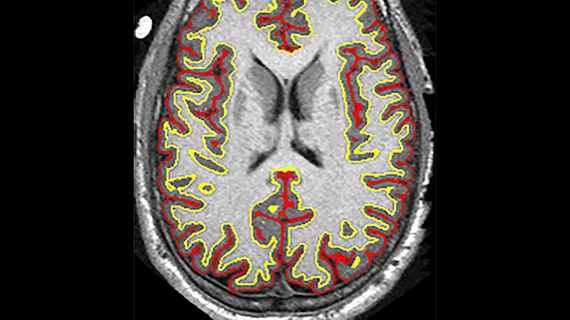MRI shows ibudilast drug may slow brain atrophy in MS patients
MRI brain scans have revealed that the anti-inflammatory drug ibudilast may slow down brain atrophy in patients with progressive multiple sclerosis (MS), according to new research published Aug. 30 in the New England Journal of Medicine. The findings may widen treatment options for MS patients experiencing long-term disability.
For the study, researchers from 28 clinical imaging sites, led by Robert Fox, MD, a neurologist at Cleveland Clinic in Ohio, examined whether ibudilast performed better than placebo in reducing brain atrophy in progressive MS patients.
The study included 255 patients with either primary or secondary progressive MS who were randomized and instructed to take up to 10 ibudilast or placebo capsules every day for 96 weeks. The participants were assessed for brain changes with MRI every six months.
The researchers found that brains of patients in the ibudilast group shrank an average of 2.5 milliliters less over the two-year period than the placebo group. Additionally, the ibudilast group reported experiencing higher rates of side effects including headaches, depression and gastrointestinal issues.
The study was funded by the National Institute of Neurological Disorders and Stroke (NINDS), part of the National Institutes of Health, and NeuroNEXT.

